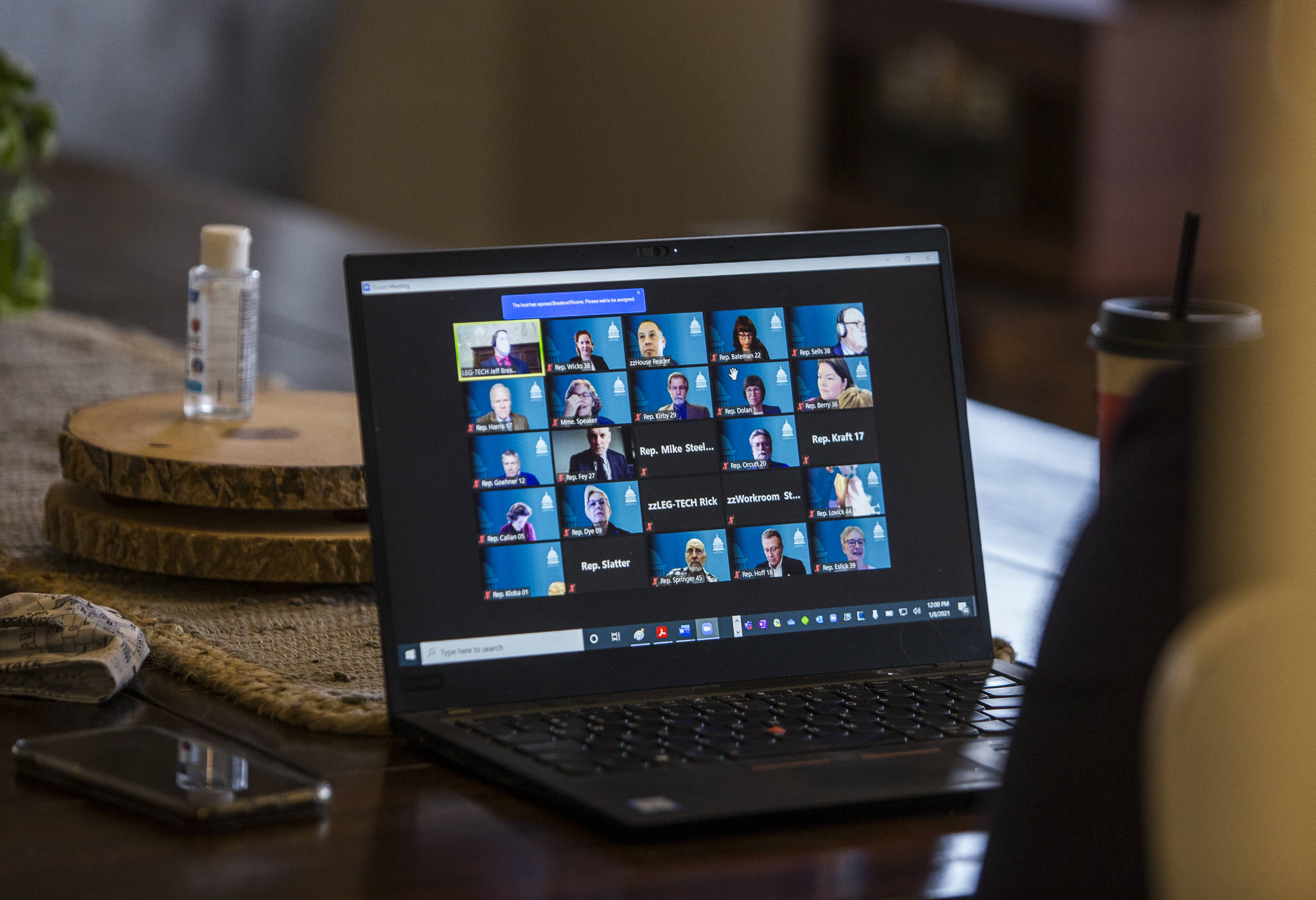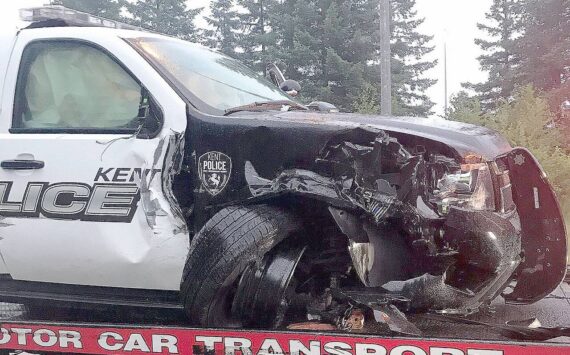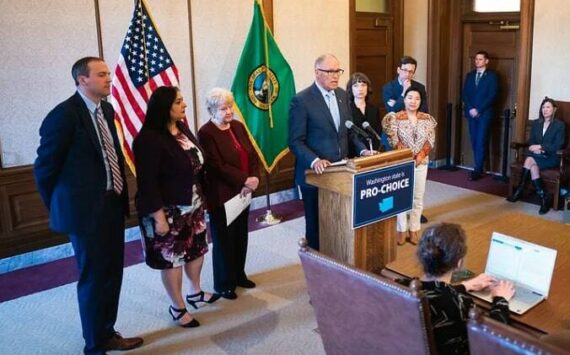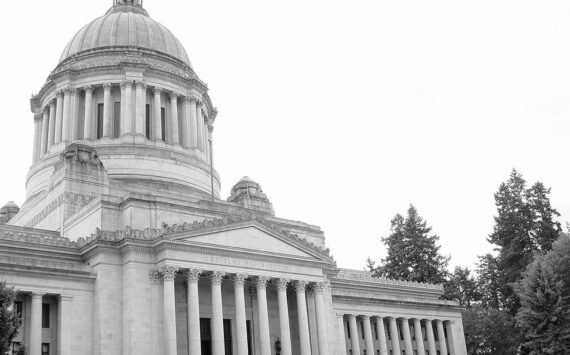OLYMPIA — New taxes. Police reform. Climate change. Economic recovery. And shoring up a public health system battling COVID-19.
Those are among myriad of issues state lawmakers and the governor will tackle during the 2021 session of the Legislature getting under way Monday, Jan. 11, in the midst of a pandemic that’s taken the lives of nearly 4,000 residents.
It will be an unprecedented undertaking, with the 147 men and women of the state House and Senate working remotely throughout nearly the entire 105-day session.
When it comes time to debate and vote on bills, you will not see 98 House members at their desks on the chamber floor. Nor will you catch all 49 senators in their seats at the same time.
Rather, you will see no more than a handful of legislators on the floor in either chamber, plus a bare minimum of staff on the dais. Members of the public, including lobbyists, will not be allowed in the viewing galleries overlooking the chambers. Those benches will be reserved for media. The Capitol building will be closed to the public all session.
In fact, Monday could be the only time lawmakers will congregate in one place. That’s because they must be present to adopt rules allowing for this virtual session. It may take a while because members must move on and off the floor to vote to comply with rules for social distancing and limits on the number of people allowed at indoor gatherings.
The rule changes will spark the session’s initial partisan debate as majority Democrats and minority Republicans are at odds on the approach.
One virtue of a virtual session is that more people across the state can participate in public hearings. A casualty, however, is direct access for the public to the grit and grind of the lawmaking process.
“The public is supposed to have access. Having a legislative session by Zoom knocks out so much public access,” said Sen. Keith Wagoner, R-Sedro-Woolley. “I suspect when we go to vote on the rule changes, you won’t see a single Republican vote for it.”
Said Rep. Lillian Ortiz-Self, D-Mukilteo, chair of the House Democratic Caucus: “We love to see the public. That is going to be a big loss to us. For their safety, and the safety of others, we’re doing it this way this year.”
Rep. April Berg, D-Mill Creek, who was sworn in Friday as one of the county’s newest legislators, agreed there will be less access, but new opportunities.
“We are going to re-imagine how we connect with constituents,” she said. “I am excited about this session because I think we will be able to touch more people in this virtual environment.”
Prepping for protests
Security on Monday will be tight in light of Wednesday’s siege of the nation’s Capitol building in Washington, D.C., and the storming of the governor’s property in Olympia by President Donald Trump’s loyalists — including some who were armed and attacked or threatened journalists.
Sen. Marko Liias, D-Lynnwood, said the events back east “shook me to a place that I didn’t think we could be shaken,” and he worried “it is going to embolden anti-democratic voices in our state. After (Wednesday), we have to be more serious.”
Access to the Capitol campus will be limited but not barred. Only those who work there can drive on and park. Otherwise the grounds are open. State troopers began closing roads and preparing checkpoints Friday.
In addition, a seven-foot-high chain link fence has been erected around the building. Fencing has also been installed to prevent access to the state Supreme Court, as well as House and Senate office buildings.
And Gov. Jay Inslee on Friday activated the Washington National Guard to assist the Washington State Patrol with security.
“There will be acres of areas for people to exercise their First Amendment rights on the Capitol Campus,” Inslee said in a statement. “But in light of the most recent insurrection activity, the state cannot tolerate any actions that could result in harm, mayhem or interruption of function of democratic institutions. Any illegal intrusion of the Capitol, state buildings or restricted areas will not be tolerated and strictly enforced.”
Earlier this week, a State Patrol spokesman pledged to have “a substantial law enforcement presence” in place Monday.
“We will be ready for large crowds. We will be ready for belligerence. We will be ready for conflict.” said Chris Loftis, director of communication for the Washington State Patrol.
The to-do lists
While the session will be conducted in unprecedented fashion online, the political dynamics will be unchanged from recent years.
Democrats will control the conversation. They outnumber Republicans 57-41 in the House and hold a 28-21 edge in the Senate. With Inslee, also a Democrat, the party enjoys a trifecta of political power.
The chief task of the Legislature is to enact a new two-year state operating budget to take effect July 1. Lawmakers will also cobble together two-year spending plans for capital construction and transportation.
Numerically, Democratic majorities are unchanged from last session. Philosophically, their caucuses in both chambers have edged left with newcomers elected in November.
This could bode well for Inslee, who is again pushing three long-stalled initiatives — a capital gains tax, a low-carbon-fuel standard for gasoline and a carbon pricing plan aimed at capping emissions and generating revenue for state coffers.
The latter two have languished in the Senate. Sen. Dean Takko of Longview, a moderate who didn’t support them, lost re-election. Democrats will be welcoming Sen. T’wina Nobles of University Place, a progressive, who ousted Republican Sen. Steve O’Ban. The governor is counting on her to be more supportive of his proposals.
Republicans will seek to rein in the emergency power of governors — a response to Inslee’s unchecked authority during the pandemic — while finding bipartisan agreement on COVID-19 aid for families and businesses hit hardest by the downturn wrought by lockdowns of the economy.
Republicans will push for ways to get schools reopened, and they are going to oppose new taxes on capital gains and a low-carbon-fuel standard, which they’ve said will drive up the price of gasoline.
“We need to focus on rebuilding our economy and getting people safely back to work,” said Rep. Carolyn Eslick, R-Sultan. “Struggling businesses and industries impacted by the restrictions need help getting back on their feet. These are our job-producers. People need a way to pay the rent and put food on the table. We cannot let them down.”
Liias, the majority floor leader, said his caucus is “not going to leave Olympia without addressing economic recovery, equity and COVID-19.”
He said he didn’t think the amount of investment needed to make a difference in those areas could be attained without some new revenue.
“What exactly it will be, I can’t predict,” he said.
Wagoner, co-chair of a bipartisan and bicameral work group studying the state’s tax structure, said he was surprised Democrats had put capital gains on the table. The panel, he said, had agreed to collect public input and bring forward ideas in 2022.
Democrats are pushing a spate of policing reforms. One bill dealing with law enforcement tactics would ban the use of chokeholds and neck restraints and use of an unleashed police dog to apprehend or arrest a person.
Another would require officers to intervene if they see fellow officers using excessive force. And a third bill would revise state policies covering officers who land on county prosecutors’ “Brady list,” a kind of scarlet letter for police officers with a documented history of being untruthful.
“Law enforcement officers are public servants who do a tough and dangerous job,” said Rep. John Lovick, D-Mill Creek, a former Snohomish County sheriff and a sponsor of the latter bills. “These reforms will help prevent tragedies, save lives and build trust between the men and women wearing the badge and the communities they serve.”
Fighting COVID and getting people vaccinated is going to get a lot of attention. Democrats are seeking to levy a new fee on health insurance policies to help fund public health departments overwhelmed since the coronavirus outbreak began a year ago.
There also will be bills ensuring those who do not get vaccinated are not barred from getting a job or professional license or entry to a business.
Overall, a byproduct of a fully remote session will be far fewer bills getting passed compared to previous years.
House Speaker Laurie Jinkins, D-Tacoma, wants members of her caucus to limit the number of bills they introduce. That hasn’t happened in the Senate, but members are aware they cannot act on as large a volume.
“It’s just going to take more time to get less things accomplished,” Liias said. “We are going to be deliberate. We are going to be cautious, and this means we are going to focus in on key priorities.”








